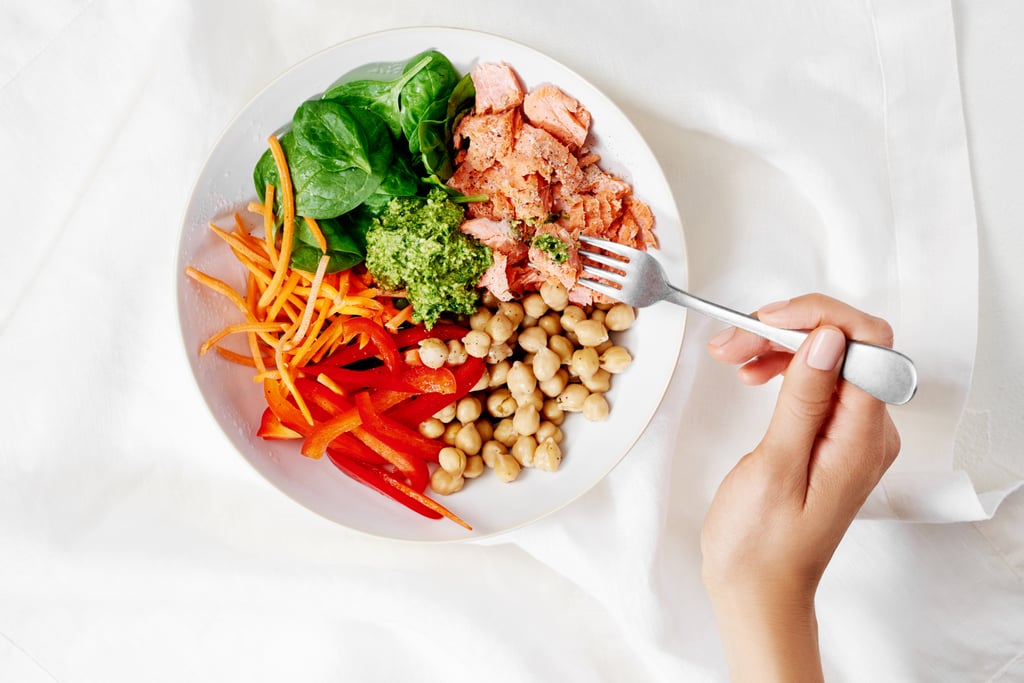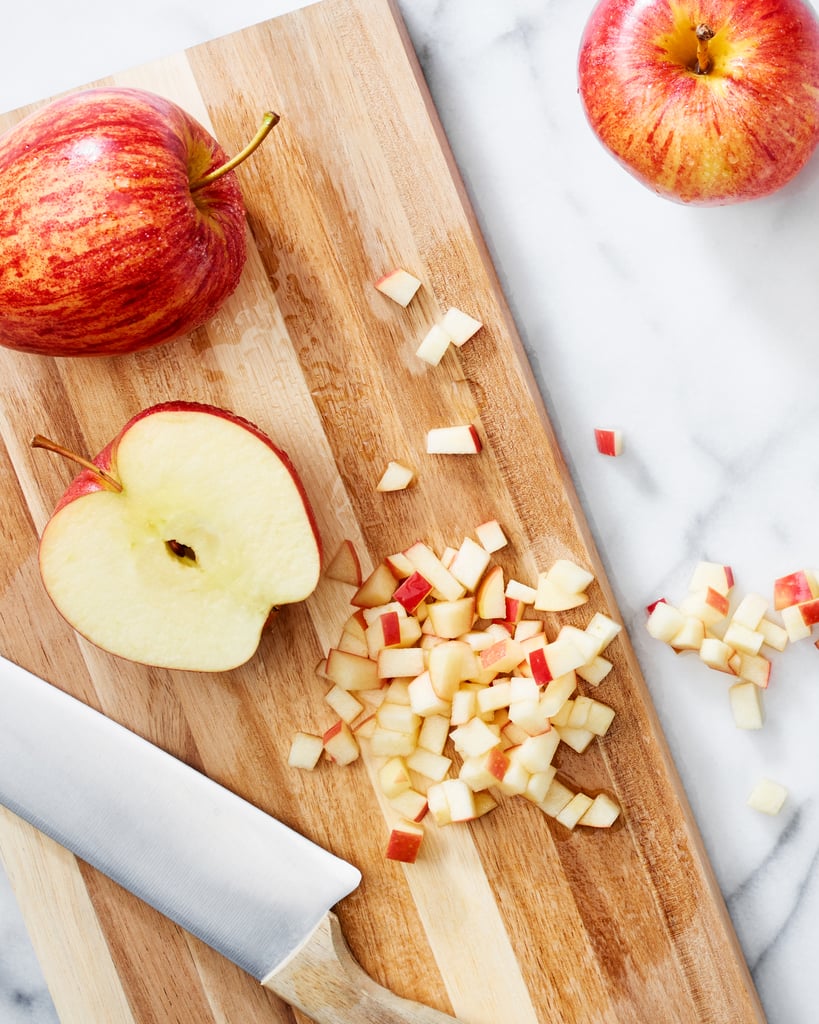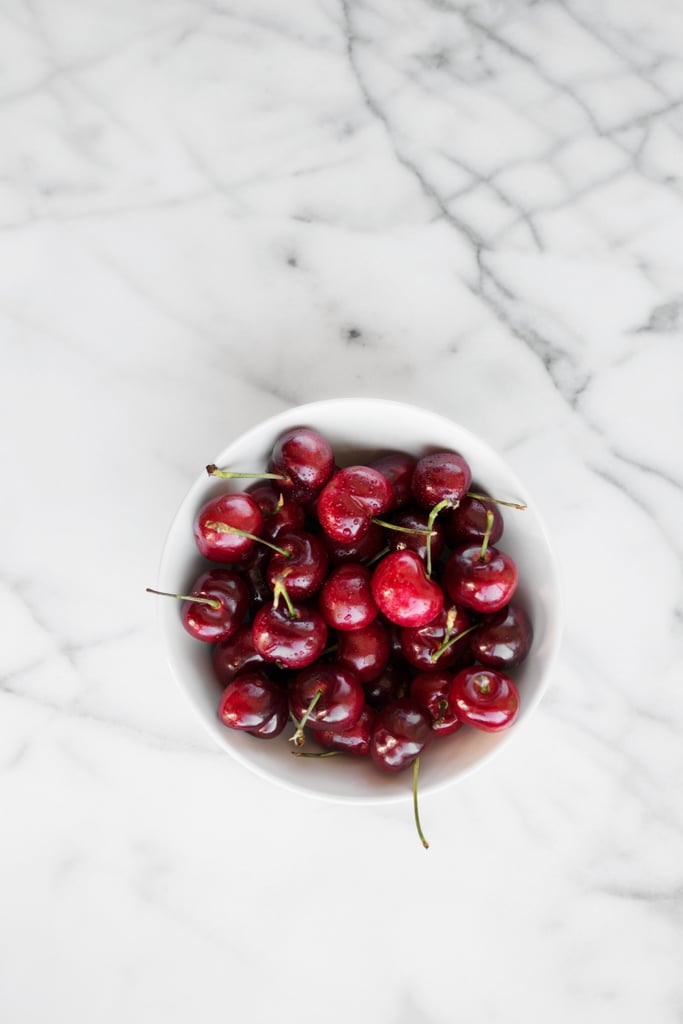Endometriosis affects approximately one in 10 women during their reproductive years [1], according to the American College of Obstetricians and Gynecologists. Yet many suffer the symptoms for years before they're diagnosed [2]. Only at that point can patients work with their doctors to find ways to manage common symptoms of endometriosis like crippling menstrual cramps, painful sex, and fatigue.
While there are medications and surgical procedures that can help bring relief, some people try to manage their symptoms by other means, including making changes to their diet and lifestyle. As a registered dietitian who specialises in women's health, I've learned that unfortunately, the data surrounding diet and endometriosis are shamefully limited. But while there are no clear recommendations for dietary changes that can reduce the symptoms of endometriosis, evidence does exist to suggest that certain foods may help. Here are five tips I give my clients.
Sip on Green Tea
Swapping out a sugary soda for a green tea [3] is a simple and cosy recommendation that clients are often happy to follow. If you have a diagnosis of endometriosis, a component found in green tea called EGCG is a secret weapon you want to keep in their back pocket. In a study published in Human Reproduction, EGCG was shown to prevent new endometriotic lesions from forming [4], therefore suggesting that it may be a therapeutic agent for the disease.
Not a fan of green tea? White, oolong, and black teas also contain EGCG, as do foods like pears, cranberries, and pecans.
Eat Salmon and Other Fatty Fish
One of the best sources of omega-3 fatty acids is cold water fatty fish like salmon. Omega-3 fatty acids offer a host of benefits to the body, one being that they act as an anti-inflammatory agent. Data suggests that a diet rich in omega-3 fatty acids reduces prostaglandins [5] and may in turn result in less severe menstrual pain and overall inflammation.
In one study conducted on women with severe menstrual pain (not specifically due to endometriosis), women were either given ibuprofen or 1,000 mg fish oil per day. Results suggest that the fish oil group had less intense pain and the fish oil appears to actually be a better treatment [6].
Focus on Fibre
Most Americans don't eat enough fibre to meet the recommended daily allowance, so make upping the amount of fibre in your meals and snacks a priority. Dietary fibre intake has been shown to have a positive effect on endometriosis symptoms such as painful menstrual cycles [7]. There's a laundry list of foods that provide dietary fibre, including fruits (with the skin!), veggies, whole-grain bread, and much more.
Eat the Rainbow
Antioxidants help combat oxidative stress [8], and some may reduce inflammation, a condition that is associated with endometriosis. Cory Ruth [9], MS, RD, a registered dietitian and women's health expert, suggests including "extra anti-inflammatory foods in your diet, like turmeric, wild salmon, extra-virgin olive oil, and berries." She also recommends eating a wide variety of colourful fruits and veggies, which thanks to their antioxidants, "may help fight against the potential damage endometriosis can cause in the body."
Antioxidant supplementation has been shown to be effective in people with endometriosis as well. Results from one study revealed that women who were supplemented with vitamin E and vitamin C had less chronic pelvic pain and a decrease in inflammation [10] compared with women who received a placebo.
Try Melatonin
Melatonin is often thought as a means to get people to sleep, and while it's true that melatonin is a hormone that plays a role in sleep regulation, it has also been shown to reduce pain scores, medication use, and improve sleep quality [11] in women with endometriosis-related chronic pelvic pain. Melatonin is naturally found in foods like tart cherries, walnuts, and pears. If melatonin-rich foods are not your jam, talk to your doctor about potentially starting a supplement.




